The word Tuscan has became so overly marketed in the US that a friend of mine said, “When I hear the word Tuscan, I think bull shit.”
Behind every “Tuscan cheese stick” in middle America, is the marketing phenomenon of Frances Mayes’ books on Tuscany.
After seven years of success with her first books, Drexel Heritage introduced a “Frances Mayes at Home in Tuscany” furniture collection. A quick google shows me that many other furniture companies also have Tuscan lines.
About the same time as the launch of Tuscan furniture lines, fast food chains got wind that the word Tuscan could sell red rocks to Arizona, and the “Tuscan Salami & Roasted Veggie Artisan Pizza” at Dominos was born.
Can you get further away from an artisan-made product than Dominos?
How about a cheese stick called “Tuscan 6-Cheese and Italian Herb” at Papa John’s? Or “Tuscan chicken sandwich” at Wendy’s which apparently is “Tuscan” because it has an aioli sauce—no matter that sandwiches in Tuscany come with no sauce at all.
Let’s not forget that the very premise of fast-food is in complete opposition to the principles of Tuscan cuisine.
This fascinating phenomenon is mostly attributable to the allure of Tuscany brought into American homes in the late 1990s/early 2000s by Mayes’ books, or perhaps more so by the release in 2003 of the movie which is extremely loosely based on her first book.
Lets have a look at Mayes’ little empire of books about Tuscany:
Under the Tuscan Sun
Ever since the wild popularity of this book, the standard contents of memoirs about Italy by foreigners became: trials of renovating, sensual descriptions of food, and ecstatic discoveries of wellness due to adopting the Italian way of eating.
Most memoir writers strive to give their book a narrative arc. According to the experts, memoir is not a journal; it must have a beginning, middle, and an end, much like a novel. The reason Under the Tuscan was called “an unlikely bestseller” is that is has no narrative arc. Instead, it’s a mediation on restoring a house and on the beauty of the Tuscan countryside. There is no tension, no drama, no real hook, only the lure of a slowed down sense of place. The author’s lyrical and poetic style works well for writing about “place”. While most readers love her way with words, critics deride the book as ego-centristic and entitled.
I was living Silicon Valley when this book came out. It was highly popular there, and affluent readers were soon flying over to Italy in pursuit of sybaritic vacations in Tuscany.
Among a demographic of well-educated, successful, but exhausted North Americans the book tapped into a yearning they hardly knew they had for a simpler, slower-paced life.
Bella Tuscany
More of the same. Well-written but seemingly not as carefully written as her runaway best seller. Again there is no plot, in fact less so than in Under the Tuscan Sun where the reader perhaps has moments of wondering whether the restoration of Mayes’ house would work out. The skill of Mayes’ prose is to be noted, and yet the amount of reviewers who call the book self indulgent and pretentious is quite high. Unlike the title suggests, the book is not focused only on Tuscany. The reader is led around locations in the US and other regions of Italy, but as we’ve learned, it’s the word “Tuscany” that sells.
In Tuscany
A collection of vignettes, recipes and photographs.
Bringing Tuscany Home
A life-style guide coffee-table book for how to bring the now hysterically popular concept of Tuscany into your own home. Photographs, recipes, and more honeyed mediations.
Every Day in Tuscany
She’s still a gifted writer but this book edges closer to diary than the first two. Even her diehard fans say that they don’t want to keep reading diary entries where nothing happens. They also complain that the book is disorganized. The inclusion of numerous recipes comes across as filler.
The Tuscan Sun Cookbook
This one is written by both Mayes and her husband (who seems to have taken on her last name). After including recipes so often in her other books, a cookbook was surely inevitable. They have spent enough years delving into Tuscan cuisine to know it well. Trust them please over Dominos, Papa John’s and Wendy’s.
Another little empire of books about life in Tuscany are the three by Ferenc Mate:
The Hills of Tuscany
Ferenc Mate and his wife create the dream that many have: they buy a farm-house in Tuscany, on a whim, and settle into a fairytale life. There is no plot but there is much rhapsodic writing about grapes, olives, mushrooms and meals. Kirkus review determines that apart from Mate’s food descriptions, “his recollections of everything else are little more than hot-air balloons tethered to nothing in particular.” This book is often compared to Under the Tuscan Sun and the general conclusion is that Mate is more wholesome than Mayes.
A Vineyard in Tuscany
A decision to try their hand at wine making cause the author and his wife to sell their house and buy 15 acres of land outside the famous wine-centered town of Montalcino. Readers will get lessons in grape-growing and restoration and will be impressed by just how much perseverance is needed to start a winery from scratch. The Mate wines are now getting Wine Spectator points in the 90s. Complimenti!
The Wisdom of Tuscany
Now this is something different: it still lauds the Tuscan lifestyle but it does so vis-a-vis the weltschmerz of the modern western world. I’m right in line with his thoughtful look at the predicament we are in— “socially shipwrecked” as he calls it. Tying in to my earlier discussion of fast-food, Mate notes, “…no one I know dreams of fast food chains and strip malls, yet the world is covered with them; hardly anyone dreams of endless suburbs and freeways, yet we’re choking on the stuff. How did it happen that the things no one wants are burying us all, while the simple town we dream of we can seldom find?”
Mate encourages us to “live where we are known” and he advocates the village as the ideal human habitation. The wisdom he shares about living in a small Tuscan town holds an undeniable truth.
And for an empire of memoirs about Italy we must include Marlena de Blasi who seems about to surpass Mayes in volume:
A Thousand Days in Venice
The author, a chef and food consultant, impulsively leaves her home and her job in the US to marry a Venetian she barely knows. She writes well and her descriptions of Venice and its food are seductive. Italy can indeed be magical but it’s not always a bed of roses and while she does share her struggles to adjust, she leans toward depicting the magical side of her adopted country.
A Thousand Days in Tuscany
I almost wish when they decided to leave Venice that they chose a region other than Tuscany so those of us avid readers of memoirs about Italy could delve into a region that is less known. This book contains much of the same themes as those by Mayes and Mate: lush food descriptions and anecdotes about the locals. While her first book gave us peaks at her relationship with her new husband, this one, when it tears itself away from food, illustrates their friendship with a local man. The title is misleading as the book covers only a year.
The Lady in the Palazzo
Oh, they’ve now moved from Tuscany to Umbria. They are like spinning tops! Here they renovate a palazzo and the author hopes to insert herself into the rather closed community by inviting people to dinner. The book covers what’s now become standard in these memoirs about Italy by foreigners: trials of renovating and sensual descriptions of food.
The Umbrian Thursday Night Supper Club
Here the author becomes part of a “supper club” of local women— the majority of whom do not accept her at first. The book moves slowly but I appreciate that the focus is taken off the author, and the spotlight is instead on the colorful life stories of the local women.
Antonia and Her Daughters
This one is also a deviation from food and renovation (and from what critics call ego-centrism.) It is about a connection that De Blasi forges with a matriarchal Tuscan woman who reveals stories from German occupied Tuscany in WWII.
That Summer in Sicily
I still cannot figure out if this is really a memoir. Most readers seem to be confused too, about its veracity. Being unsure that it is really non-fiction I’ll refrain from saying more about it—plus I’ve not read it yet but I heard it’s “magical”.
In the 1990s, before the first Frances Mayes book came out, Tim Parks wrote two memoirs about life in Verona:
Italian Neighbors was followed by An Italian Education. Both are about his life as a Brit, married to an Italian woman, and living in a village outside of Verona. Because his account is much less honeyed than that of Mayes, it’s considered more “realistic.” I tried reading the first one when it came out and while I appreciate his ability to be witty and realistic, he doesn’t open up to the reader, and thus I was not draw in enough to continue. More recently Parks wrote A Season with Verona, about following his home soccer team around Italy. Enthusiastic reviewers say that if you love football, you’re in for a treat.
Return to Glow
This one is by me 😉
My memoir does not discuss restoring a neglected Italian farmhouse nor does it proclaim that Italian food returned me to a fountain of youth and vigor. (Nothing wrong with those topics but a divergence from the standard fare may appeal.) Return to Glow takes place on Italy’s ancient pilgrimage route— a route in its infancy, discovered by pilgrims incrementally more each year. Readers learn of a lesser-known side of Italy as they share in my walk over the Apennines, through the valleys of Tuscany, and beside busy highways on my trek to Rome. An inner journey is recounted as well, which one reviewer described as an honest self-examination that speaks to our shared humanity as we seek fulfillment on our hero’s Journey through life.
If a memoir appeals to you that introduces an Italy off the beaten path and side-steps the customary topics, I’d be honored to gain you as a reader 🙂
It is available in both Kindle and paperback
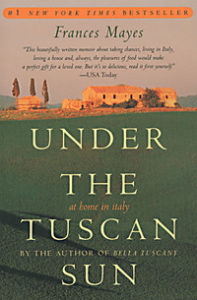
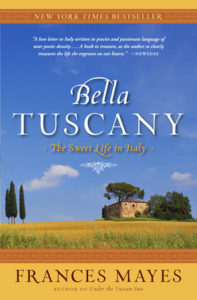
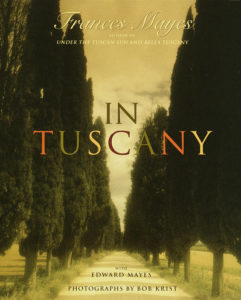
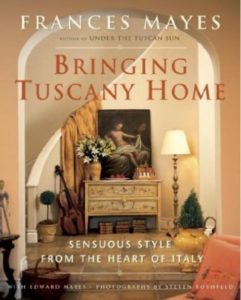
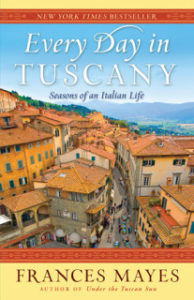
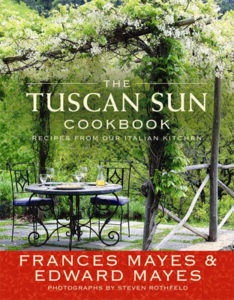
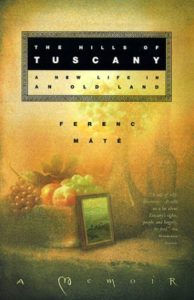
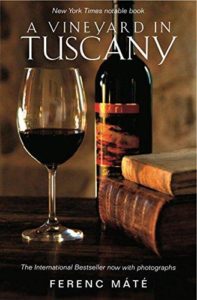
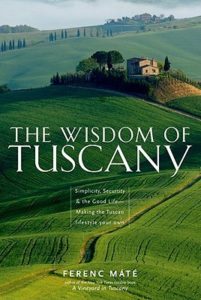
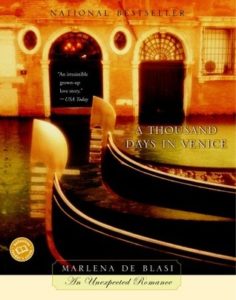


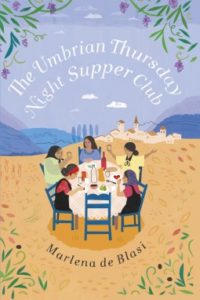


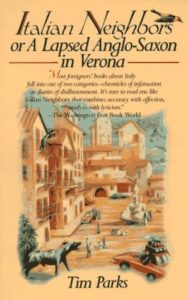
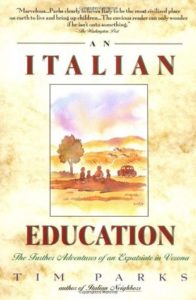
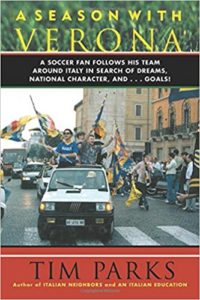
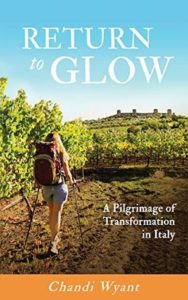
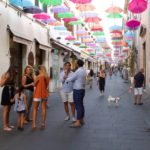
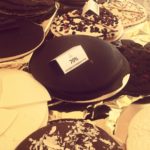
I didn’t know about Marlena de Blasi’s books. They sound good. What did you think of how the Under the Tuscan Sun movie was nothing like the book?
Frances Mayes writes well. (She is/was a creative writing instructor.) But with no narrative arc, no real drama or tension, it did not lend itself at all to a movie. Thus most of the movie’s storyline had to be invented. I don’t think I’ve ever seen such a radical departure in a movie script, from the book that it is supposedly following.
How bizzare. They did it just for movie sales, you think?
i read the book before i saw the movie, and i agree. frances mayes writes well, but there is no real story. it was interesting and enjoyable to me, however, because my husband and i were about to renovate a tuscan villa. (our situation was different though – we did the work ourselves.) several people recommended (and really loved) the movie, so my husband and i sat down and watched it one night in the midst of our renovation process. we both thought it was horrible, and still cannot understand the widespread appeal.
i am eager to read your book, chandi. a section of via francigena is very close to our house and we have walked on it many times (much shorter distances than you!).
Hi April,
The movie probably appeals because it romanticizes Italy and an American woman’s experience there. It is full of cliches and is escapist in typical Hollywood form. People don’t care about cliches and they are lured in by the escapism and the romanticization.
I am so pleased you plan to read my book. Thank you!
I haven’t read any of these, and I’m always looking for new travel themed books so thank you for putting this together! I am dying to go to Italy and have a feeling these will make that stronger….
Great! Hope you can visit Italy soon!
Be careful! Like a devastatingly handsome cameriere rolling up a dessert cart, these books will lead you down a deliriously delightful path you may NEVER want to return from!
I picked up 1000 Days in Venice and WHOOSH it took me back 42 years to when I was a college kid in Venice on an Art Tour. Even then I had refused to get in a gondola ‘with a bunch of girls’ because I wanted to save it for a worthy romantic companion!!!
Well one after another, I’m now only 22 books into my self-guided course on Venezia…
I appreciate the list: we live in a fabulous age where books can always be found.
Wow, 22 books about Venice! Go Girl!
You’ve got some great selections in your list. Literary travel is a really engaging niche to become immersed in.
This is a great write up and inspiring list of books to read! Thank you!
Prego!
What about Innocents Abroad by Mark Twain?
Hi Cardie,
It’s a classic, that was written in the 1800s and I was focusing on much more recent memoirs. Plus this one of Twain’s goes all over Europe and into the Middle East, and I was focusing on ones that take place in Italy.
What an impressive review of the books relating to Tuscany. And I like that the reviews are succinct.
Yeah, some people are churning them out!
A very helpful compilation of recent books about Italy. Reading some of these will be a great prep for our upcoming trip. Thank you for your insightful reviews. Saves me a lot of time.
Glad you found it helpful!
I really enjoyed these book reviews! I also found the commentary on “Tuscan” very entertaining. The term has indeed become ubiquitous as a marketing tool. Yuck! On that note, I happened to stumble upon an author named Dario Castagno. He wrote Too Much Tuscan Sun: Confessions of a Chianti Tour Guide, playing off Francis Mayes’ book title. Regarding Tim Parks, he’s an old friend. We taught English together back in the early 80s in Verona. In fact, I’m a side character in two of his novels, Cara Massimina and Mimi’s Ghost. They are light, enjoyable reads.
Ciao Dan,
That book of Dario’s is hilarious. Thanks for reminding me about it. How interesting that you are a side character in two of Tim Parks’ novels!